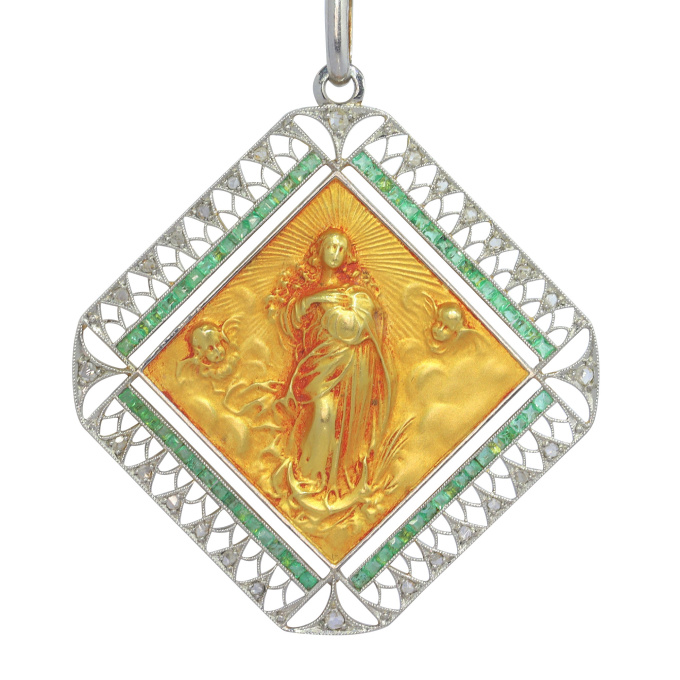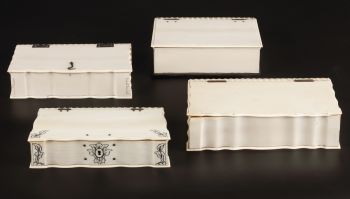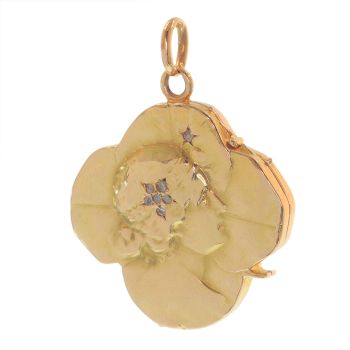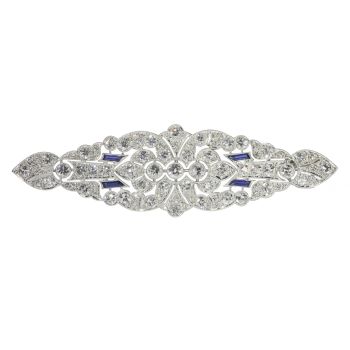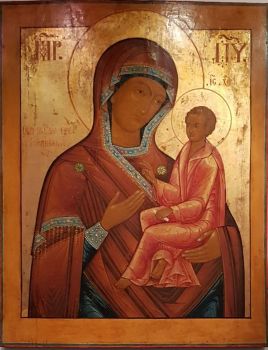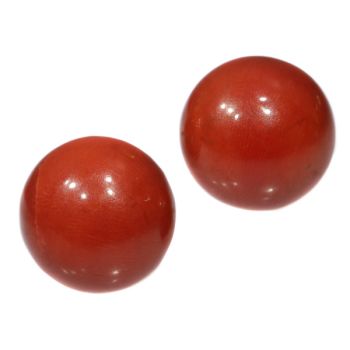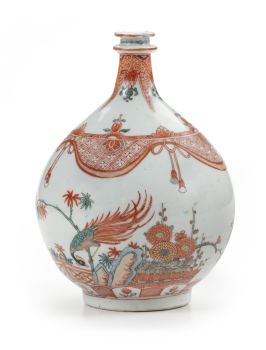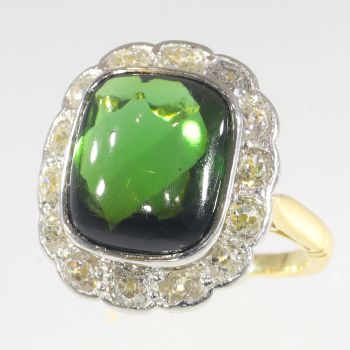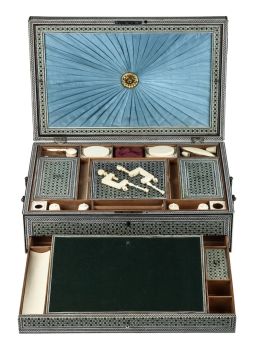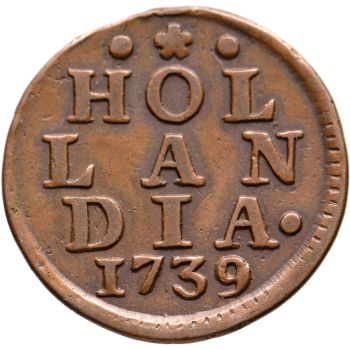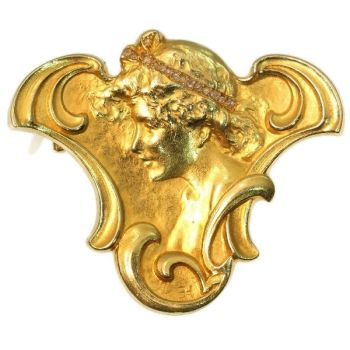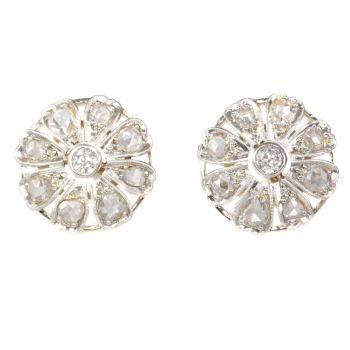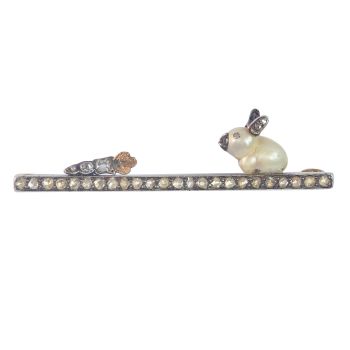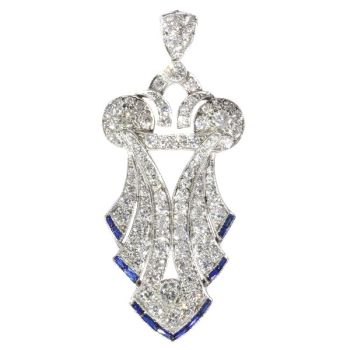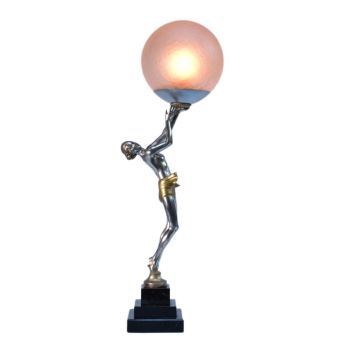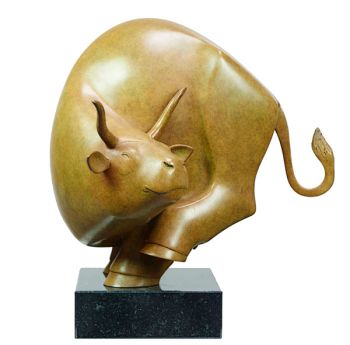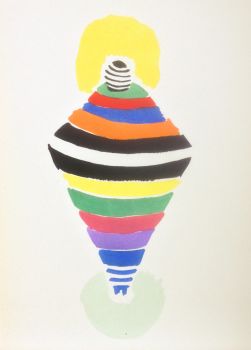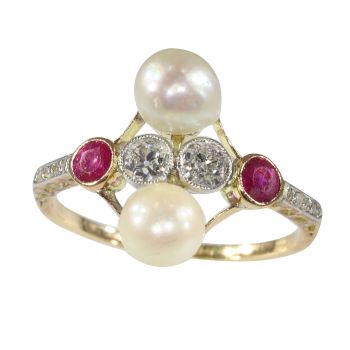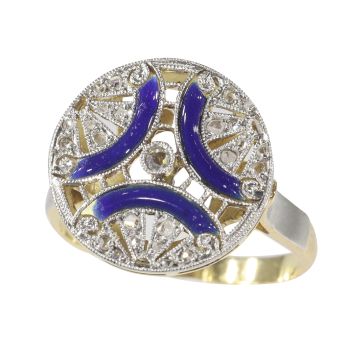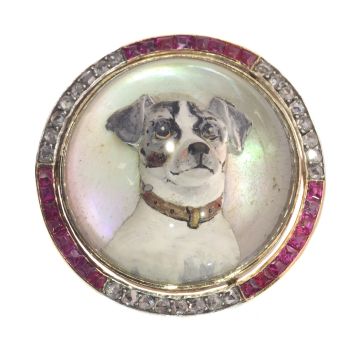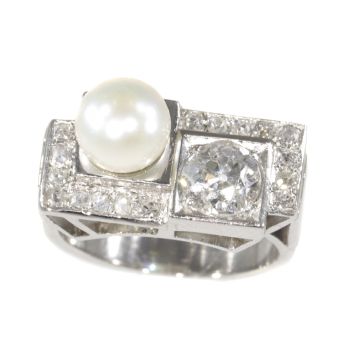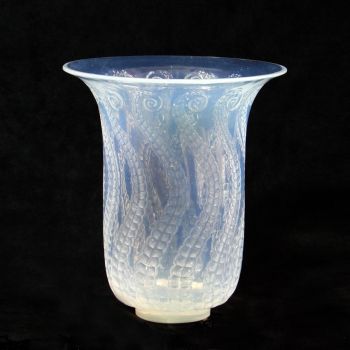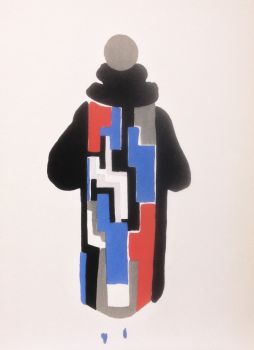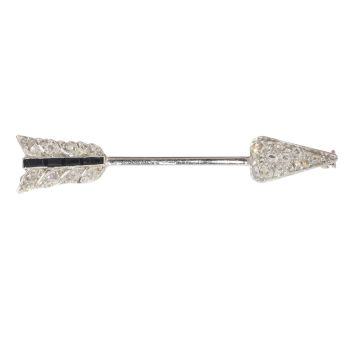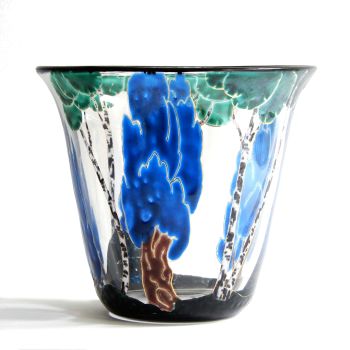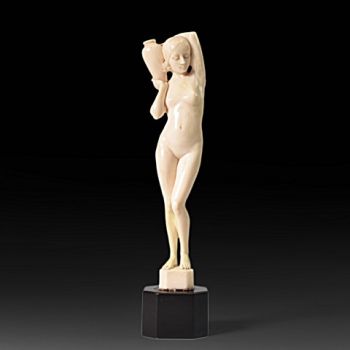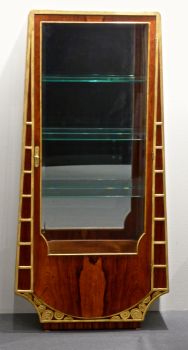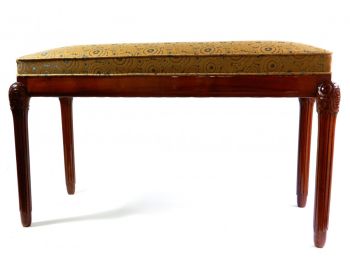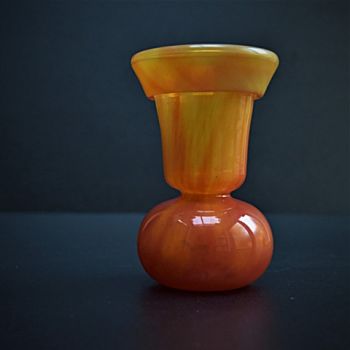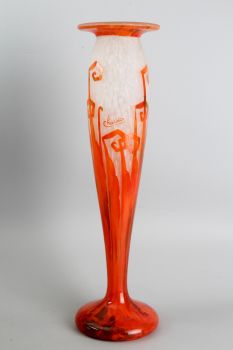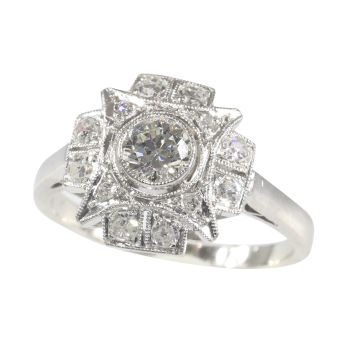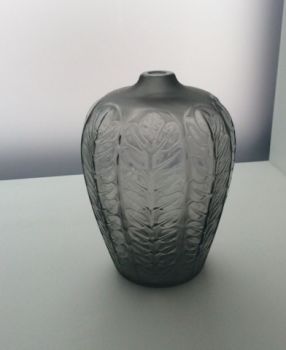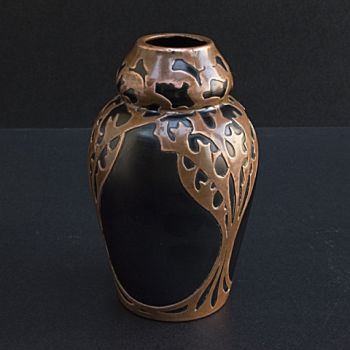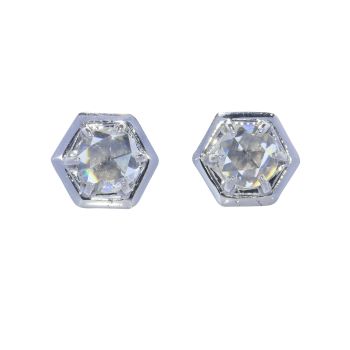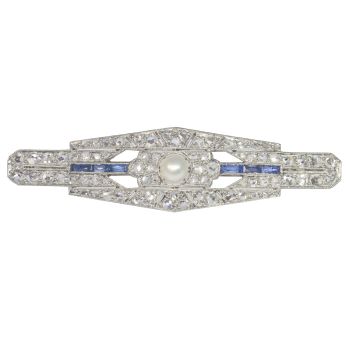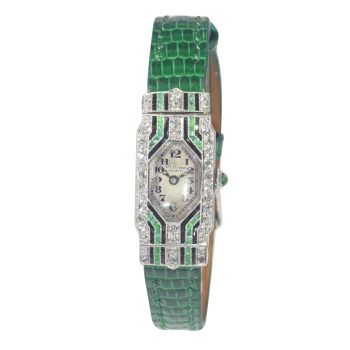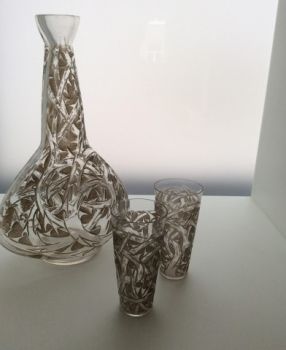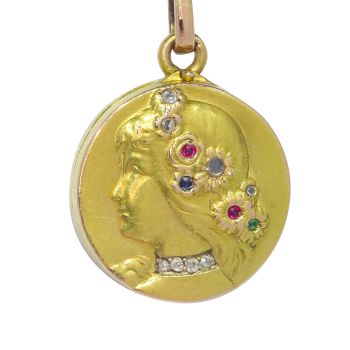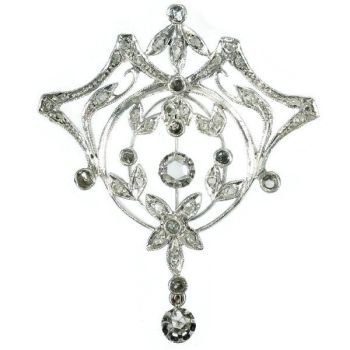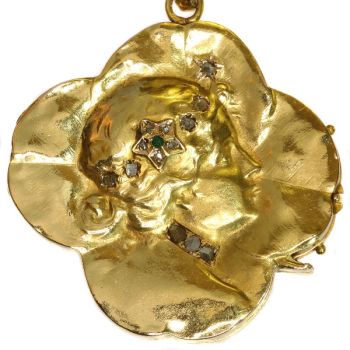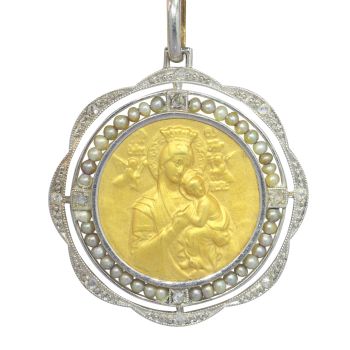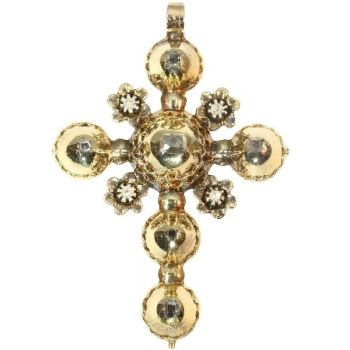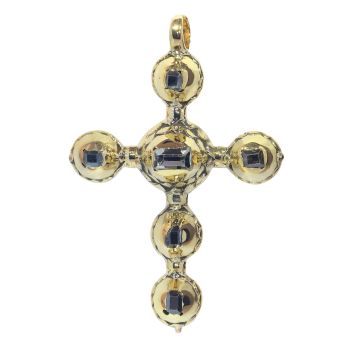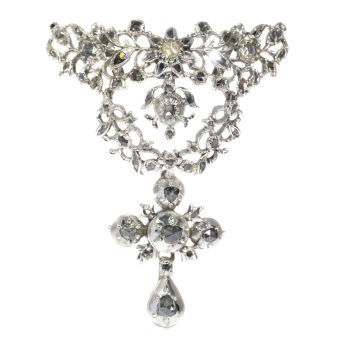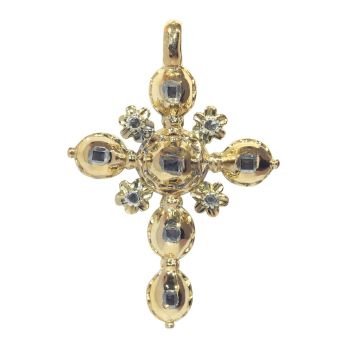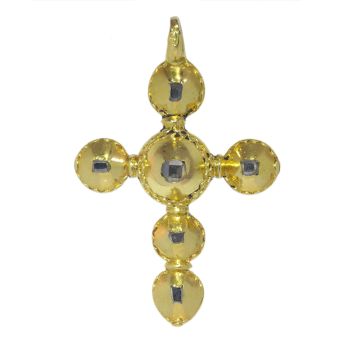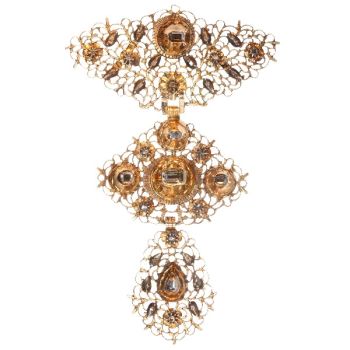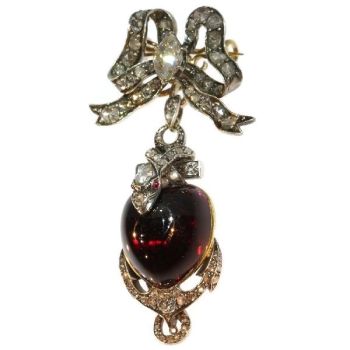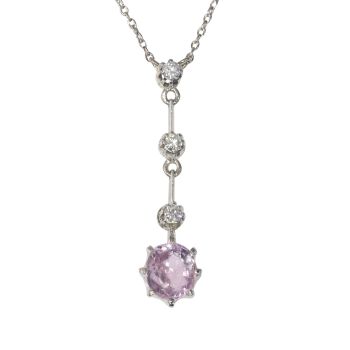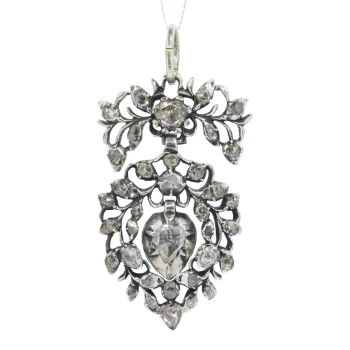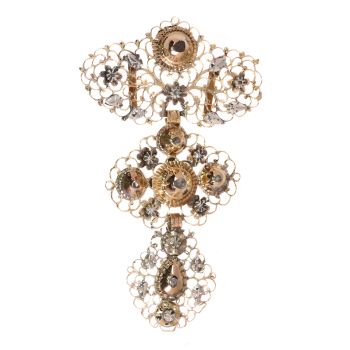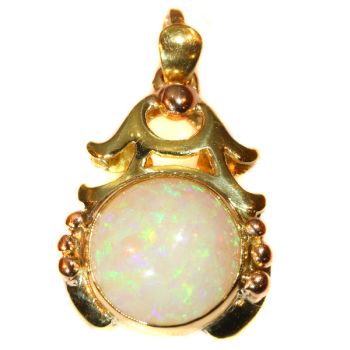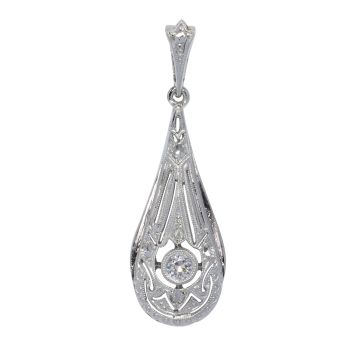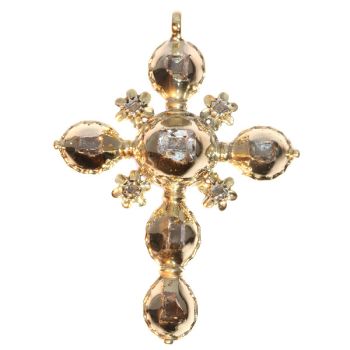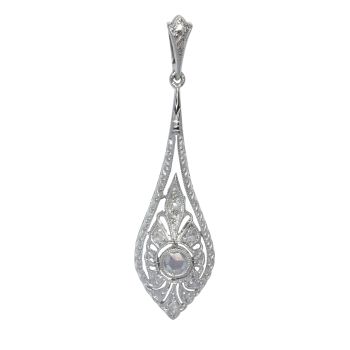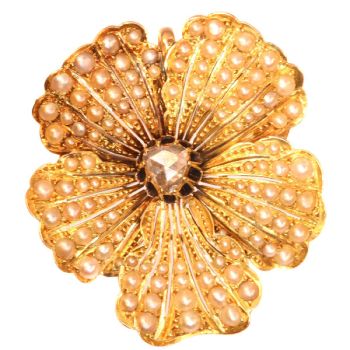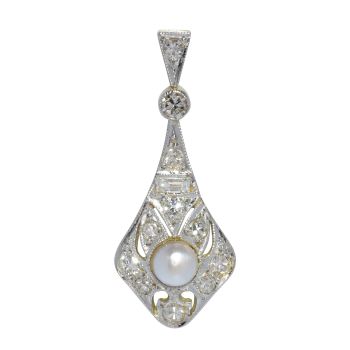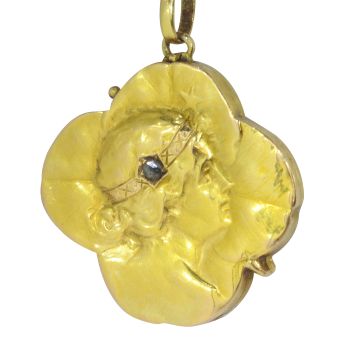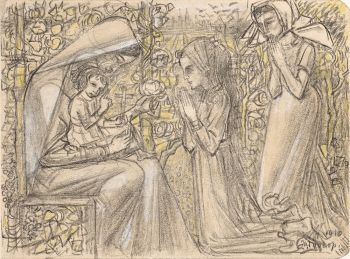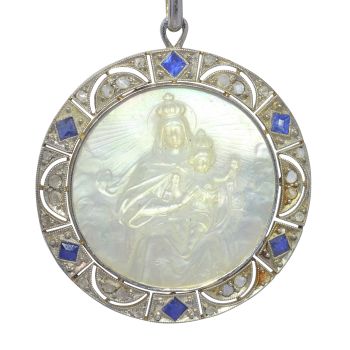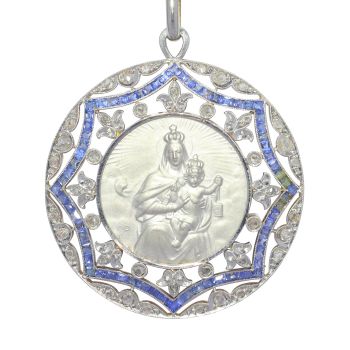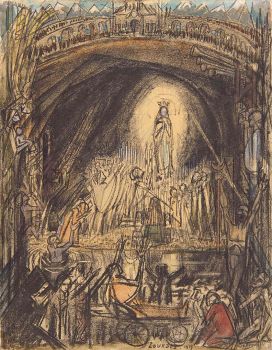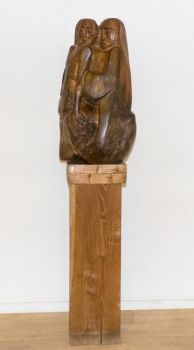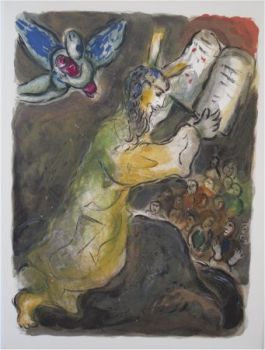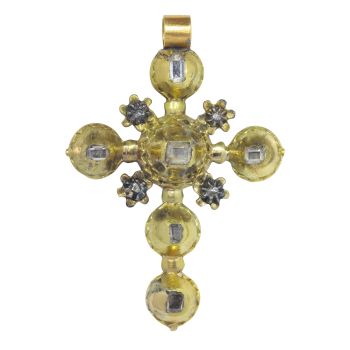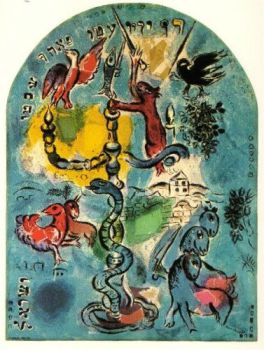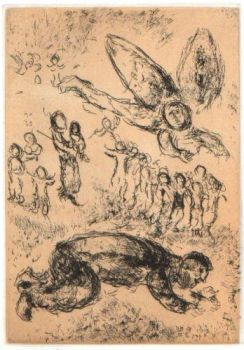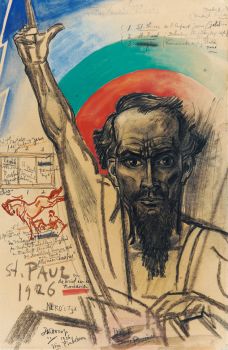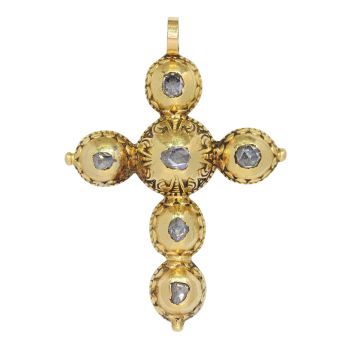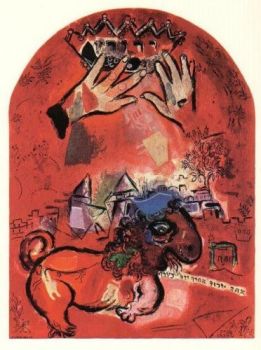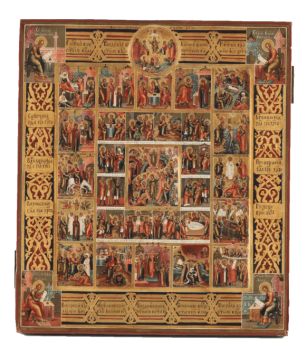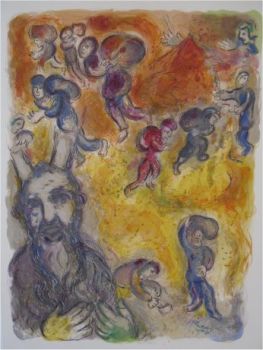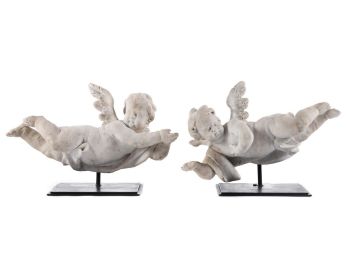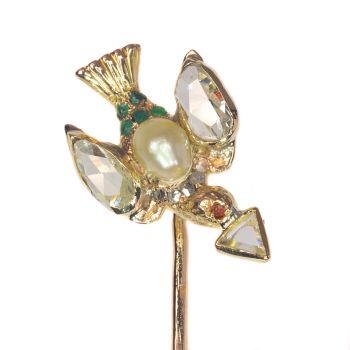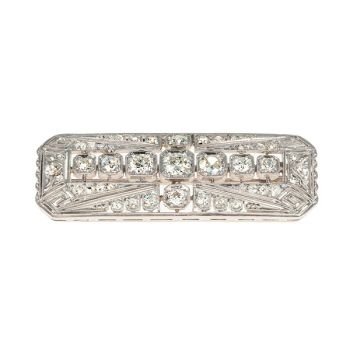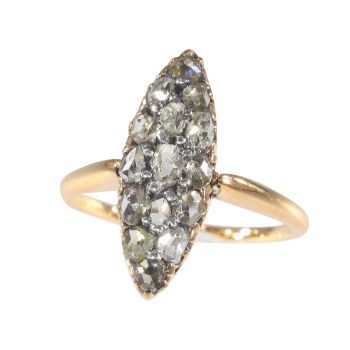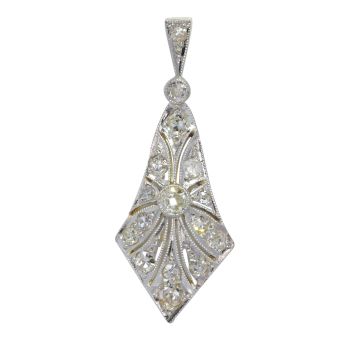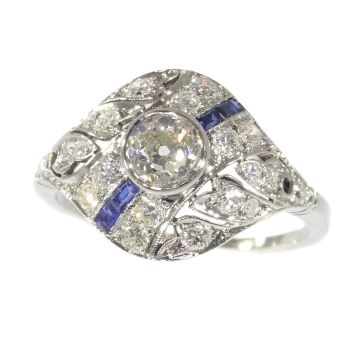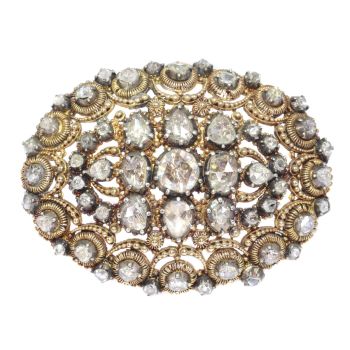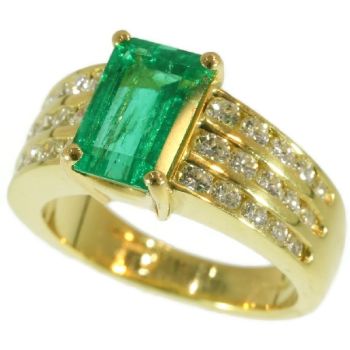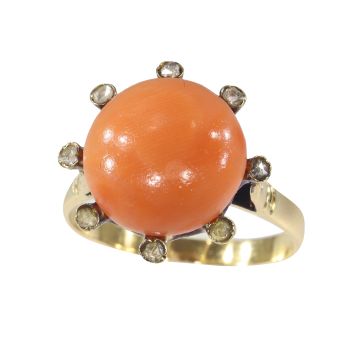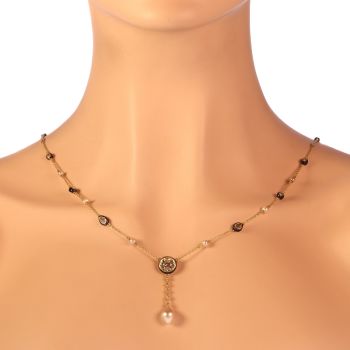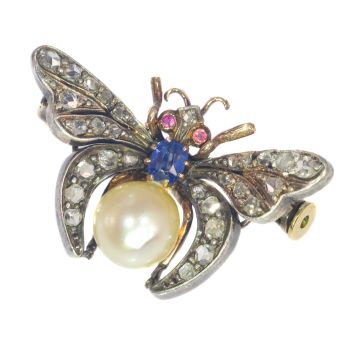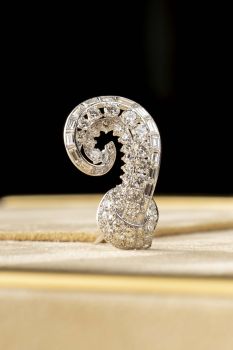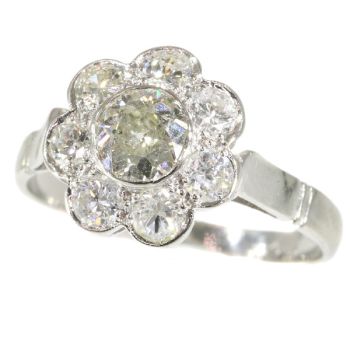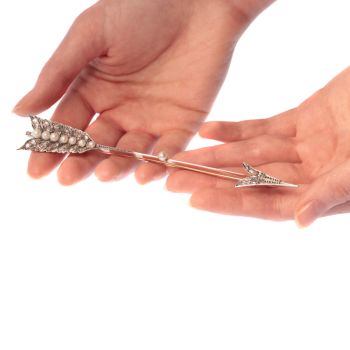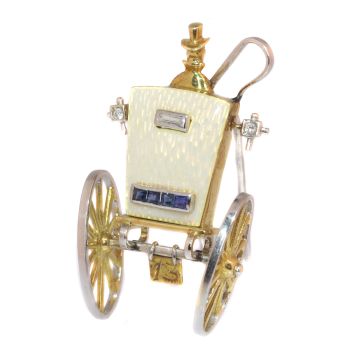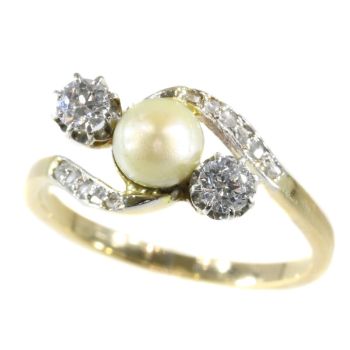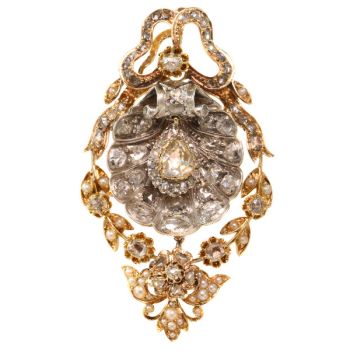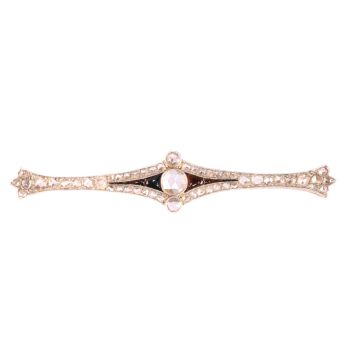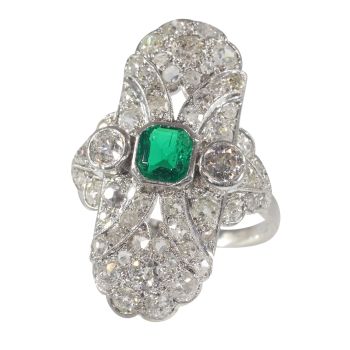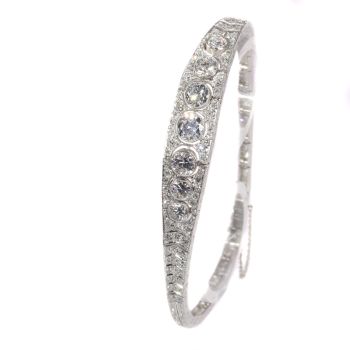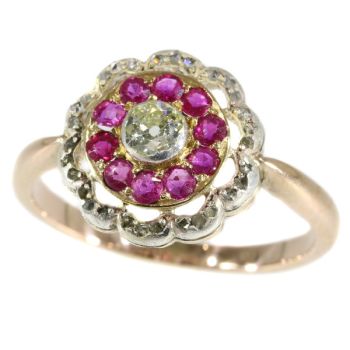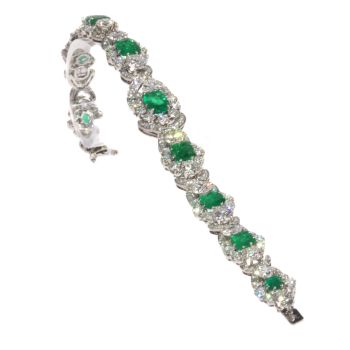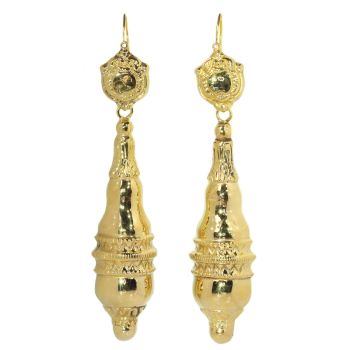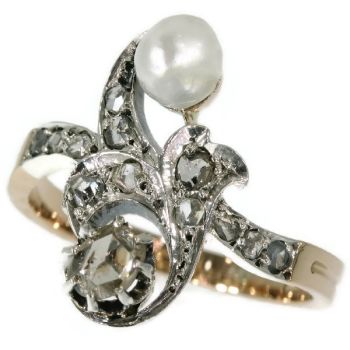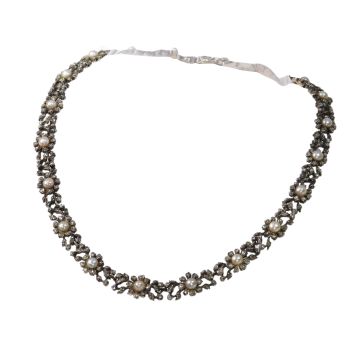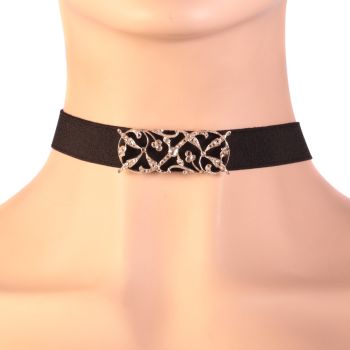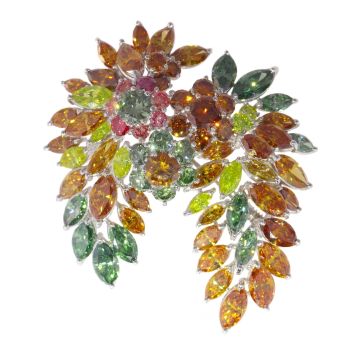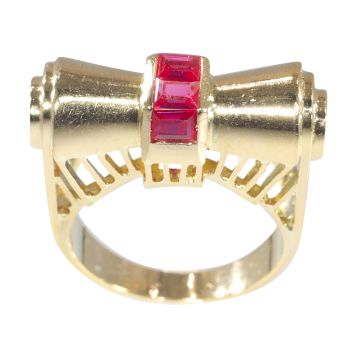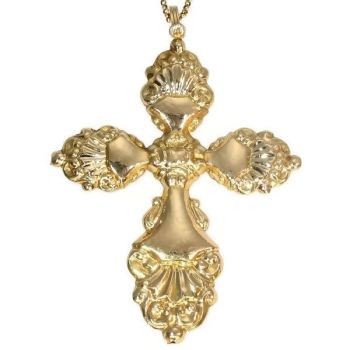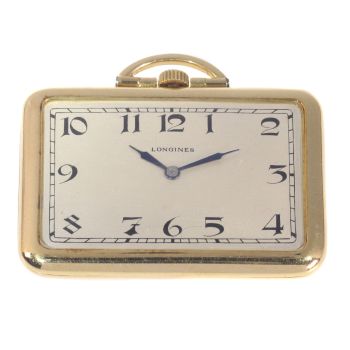Vintage 1910's Edwardian - Art Deco diamond and emerald medal pendant Mother Mary Queen of Angels 1910
Onbekende Kunstenaar
DiamantSmaragdEdelsteen
€ 4.950
Adin Fine Antique Jewellery
- Over kunstwerk
Antique jewelry object group
pendant
Condition
very good condition
more info on our condition scale
Country of origin
unknown
Style
Between Edwardian and Art Deco - The Edwardian era or Edwardian period in the United Kingdom is the period covering the reign of King Edward VII, 1901 to 1910. The death of Queen Victoria in January 1901 and the succession of her son, Edward, marked the start of a new century and the end of the Victorian era. While Victoria had shunned society, Edward was the leader of a fashionable elite which set a style influenced by the art and fashions of continental Europe—perhaps because of the King's fondness for travel. The era was marked by significant shifts in politics as sections of society which had been largely excluded from wielding power in the past, such as common labourers and women, became increasingly politicised. Art Deco is an eclectic artistic and design style which had its origins in Paris in the first decades of the 20th century. The style originated in the 1920s and continued to be employed until after World War II. The term "art deco" first saw wide use after an exhibition in 1966, referring to the 1925 Exposition Internationale des Arts Décoratifs et Industriels Modernes that was the culmination of high-end style modern in Paris. Led by the best designers in the decorative arts such as fashion, and interior design, Art Deco affected all areas of design throughout the 1920s and 1930s, including architecture and industrial design, as well as the visual arts such as painting, the graphic arts and film. At the time, this style was seen as elegant, glamorous, functional and modern.
See also: Edwardian and Art Deco
more info on styles
Style specifics
As for its elegant design, this jewel has the finesse of an Edwardian piece reacting gracefully against the very geometrical forms of Art Deco that was strongly influenced by Cubism. However, because both Edwardian and Art Deco styles were contemporaries of each other, we sometimes notice pieces - like this one - that carry both influences.
Period
ca. 1910
Events & facts of this era, poetry of this era, fashion of this era.
Source of inspiration
Christianity
Theme
Mother Mary Queen of Angels
Material
Two tones of precious metal, the main part being 18K yellow gold and the white parts are either white gold or platinum. (touchstone tested)
more info on precious metals
Diamonds
28 senailles. A senaille is a simplified rose cut diamond, a small diamond chip with perhaps a few polished facets. We do not have the weight of these diamonds which is normal in our trade when it comes to senailles.
All diamonds we offer are screened by the I.J.G.C. for whether they are natural or synthetic, and all diamonds in this jewel are 100% guaranteed to be natural.
Precious stones
68 emeralds. We did not check if the emeralds are lab produced or not as this information has no influence on the value of this jewel. Natural emeralds and lab produced emeralds were both used in this era, rather more for their effect than for their intrinsic value.
Birthstones
Diamond is the birthstone (or month stone) for April and emerald for May.
more info on birthstones
Hallmarks
"750" indicating 18K gold
more info on hallmarks
Dimensions
4,52 cm (1,78 inch) x 3,52 cm (1,39 inch)
see picture with a ruler in millimeters and inches
Weight
9,10 gram (5,85 dwt)
Adin Reference Nº
23191-0430
Copyright photography
Adin, fine antique jewellery
Additional information
our latest acquisitions
jewelry glossary
wall of fame
visit us in Antwerp
subscribe to our mailinglist
- Over kunstenaar
Het kan voorkomen dat een kunstenaar of maker onbekend is.
Voor sommige werken is het niet te bepalen door wie het gemaakt is of dat het is gemaakt door (een groep) ambachtslieden. Voorbeelden zijn beelden uit de Oudheid, meubels, spiegels of handtekeningen die vaak niet duidelijk of leesbaar zijn. Maar ook sommige werken zijn helemaal niet gesigneerd.
Ook kunt u de volgende beschrijving vinden:
•"Toegeschreven aan …." waarschijnlijk een werk van de kunstenaar maar niet zeker of gedeeltelijk
•“Atelier van ….” of werkplaats van” een werk uitgevoerd in het atelier of atelier van de kunstenaar, eventueel onder zijn toezicht
•“Cirkel van ….” een werk uit de periode van de kunstenaar die zijn invloed laat zien, nauw verbonden met de kunstenaar maar niet noodzakelijkerwijs zijn leerling
•“Stijl van ….” of “Volger van ….” een werk uitgevoerd in de stijl van de kunstenaar, maar niet noodzakelijk door een leerling; kan eigentijds of bijna eigentijds zijn
•“Wijze van ….” een werk in de stijl van de kunstenaar maar van latere datum
•"Na …." een kopie (van welke datum dan ook) van een werk van de kunstenaar
•“Getekend…”, “Gedateerd….” of “Ingeschreven” dan is het werk gesigneerd/ gedateerd/ ingeschreven door de kunstenaar. De toevoeging van een vraagteken duidt op een element van twijfel
•"Met handtekening ...", "Met datum ...", "Met opschrift..." of “Draagt signatuur/datum/opschrift” dan is de handtekening/datum/opschrift toegevoegd door iemand anders dan de kunstenaar
Bent u geïnteresseerd om dit kunstwerk te kopen?
Artwork details
Related artworks
Onbekende Kunstenaar
EEN COLLECTIE VAN VIER SRI LANKAANSE IVOREN BIJBEL DOZEN18th century
Prijs op aanvraagZebregs & Röell - Fine Art - Antiques
1 - 4 / 12- 1 - 4 / 24
- 1 - 4 / 24
Onbekende Kunstenaar
UITGEBREIDE FEESTDAGENIKOON MET PASSIECYCLUS19th century
Prijs op aanvraagHeutink Ikonen
Onbekende Kunstenaar
A pair of angels Antwerp, 17th century, Carrara marble17th century
Prijs op aanvraagFrederik Muller
1 - 4 / 24- 1 - 4 / 24
- 1 - 4 / 12

